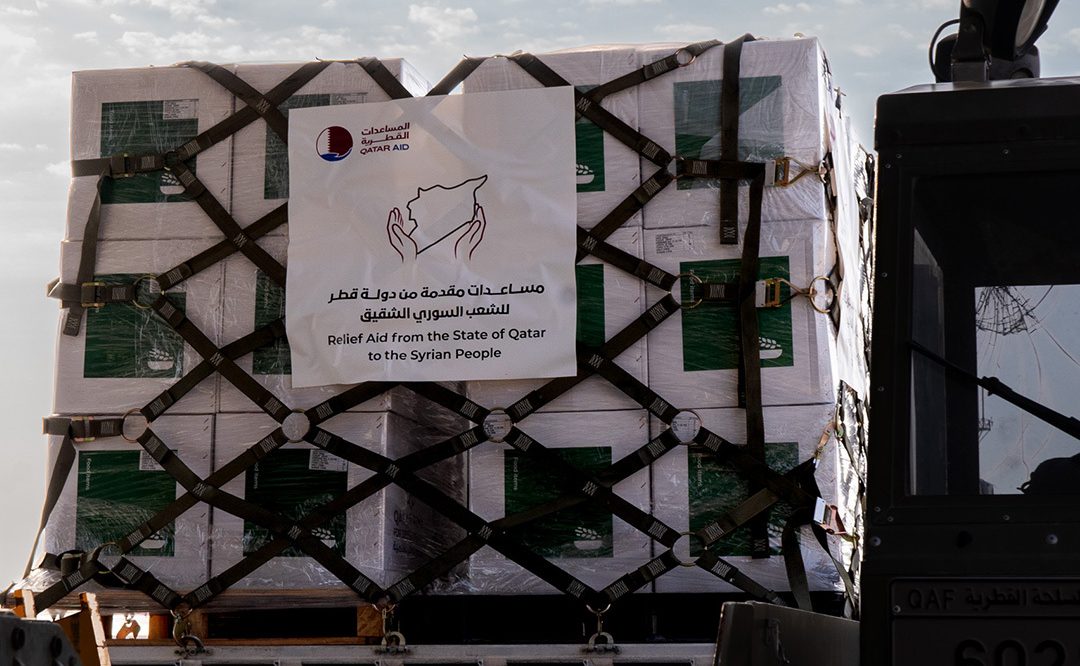The issue over supply and demand in the sector, particularly the US, was among the key speaking points at the joint panel.
Sustainability is the key factor that could impact the future of the aviation industry, Boeing CEO David Calhoun told a panel in Doha on Wednesday.
“I think it’s all about sustainability. Anything and everything we can bring to an airplane to increase its sustainability, that will be the differentiator,” said Calhoun in a discussion on the final day of the Qatar Economic Forum (QEF) in the capital.
The chief’s remarks came in response to a question over the 20 to 30 year outlook for the industry, raised by moderator Guy Johnson, Bloomberg TV anchor.
Calhoun was joined by Luis Gallego, CEO of International Airlines Group (IAG) at the panel titled “From Celestial to Terrestrial: A Grounded Perspective”, mainly focusing on the aviation industry’s challenges.
Commenting on the sustainable future of the sector, Gallego said that IAG has the commitment to ensure that 10% of its flights are powered by sustainable fuel by 2030.
Gallego also called on governments to contribute to the aviation industry’s efforts in leading a sustainable future.
“What is important is that the governments put in place policies to invest in new plants of sustainable aviation fuel,” said the IAG official.
Meanwhile, Calhoun said Boeing aims to ensure every plane under its wing is capable of 100% sustainable fuel by 2030.
“When we think about fleet planning today, efficiency and emissions are becoming equal parts and the pressure is probably going to get more severe, not less,” said the Boeing chief.
Supply-demand issue
The issue over supply and demand in the sector, particularly the US, was among the key speaking points at the joint panel.
With more people eager to travel following Covid-19 restrictions, the industry is witnessing a spike in demand that is surpassing supply. Countries including the US saw a significant labour shortage that has led to delays and cancellations of flights.
The staff crunch was seen among cabin crew and maintenance staff, as Forbes reported earlier this month. Responding to the shortage, United Airlines CEO Scott Kirby said in April that American companies are aiming to hire up to 12,000 pilots this year.
“We have a big, complicated supply chain with a lot of fragility built into it, it has always been this way and so finding those supply constraints, and dealing with them when they appear has been a real issue,” said Calhoun.
The Boeing official said that the situation, in his view, will last until the end of 2023, with mid-tier parts manufacturers being impacted the most. Following up on Calhoun’s remarks, Johnson asked if a recession would fix the issue.
“I won’t be championing a recession talk, and, on the other hand, I have no doubt that some slowdown of some sort would be helpful and will create the stability that we need and then will start to respond to the demand in aviation,” explained Calhoun.
Another trend seen in the aviation sector was that the demand for freighters was not impacted. Calhoun noted that this trend is going to continue “for quite some time”.
“The demand for freighters didn’t get impacted at all over the pandemic, which is a remarkable fact and beyond that many of the cargo holes in passenger airplanes were filled and flew with very few passengers,” said Calhoun.







